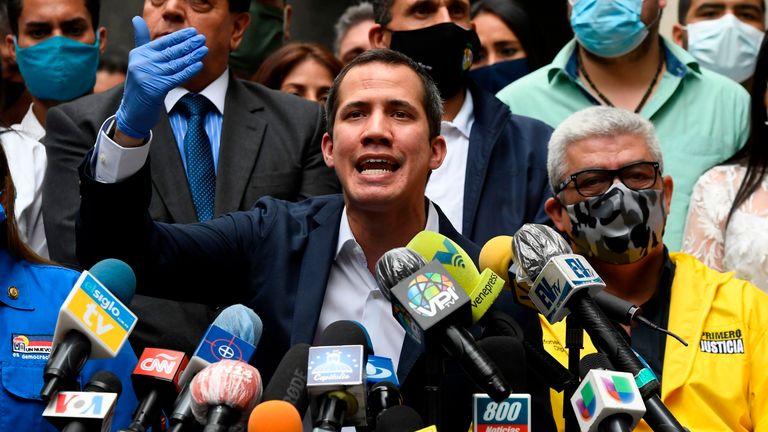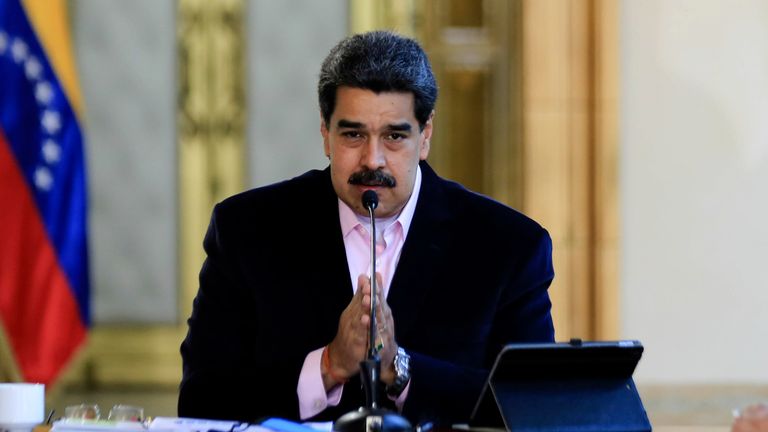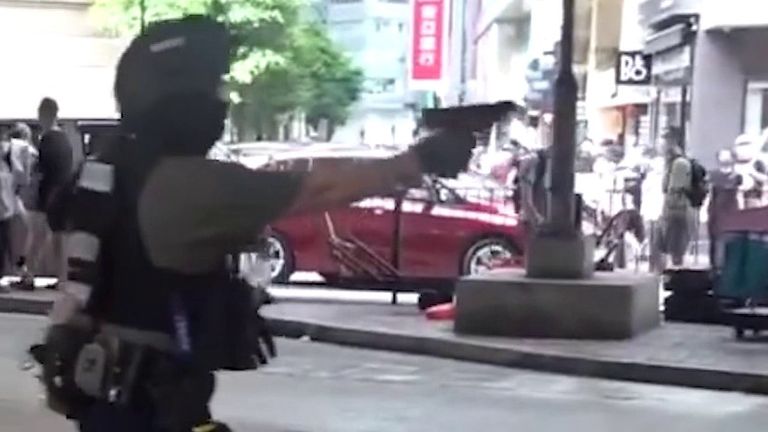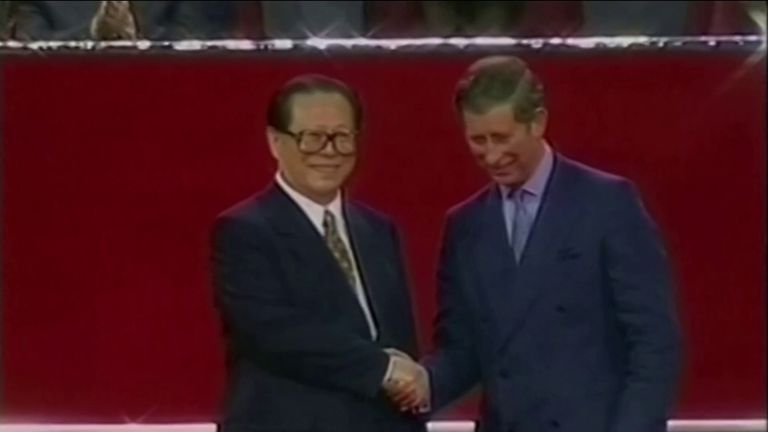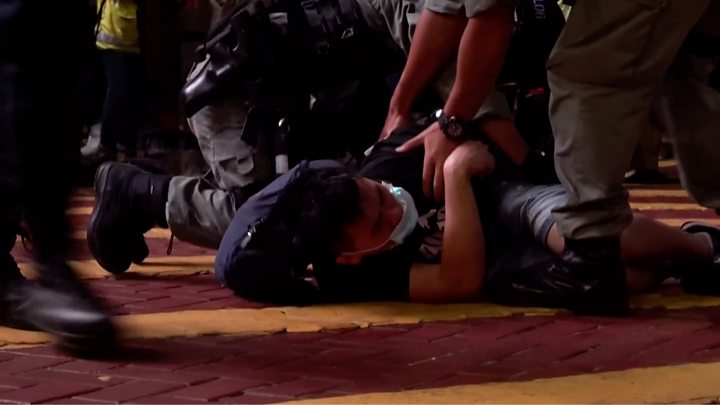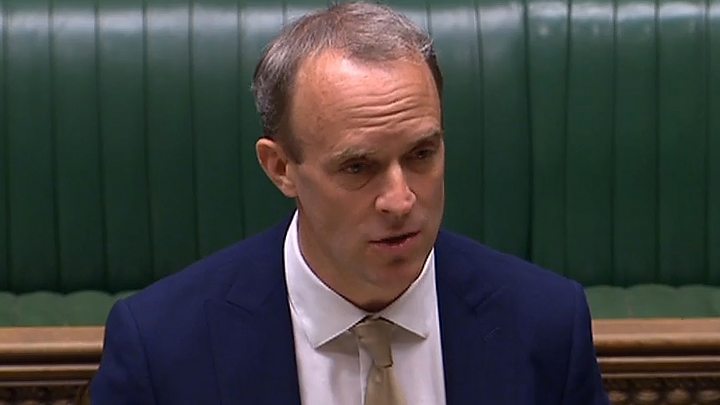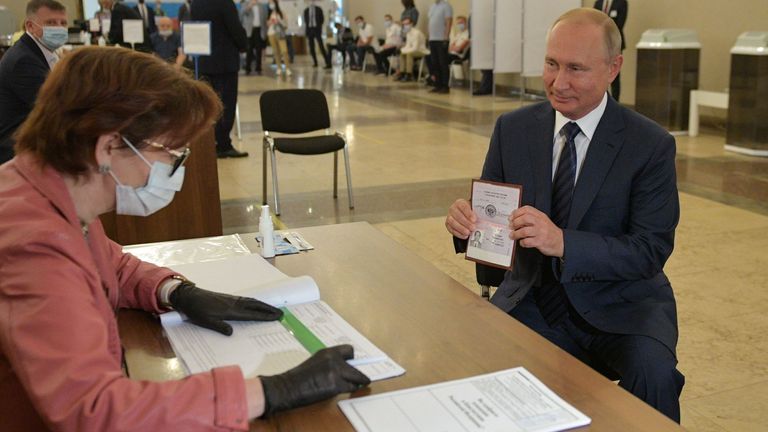The UK has said it "unequivocally recognises" opposition leader Juan Guaido as Venezuela's president in a crucial ruling over the fate of £800m in gold bullion being held in the Bank of England's vaults.
Banco Central de Venezuela (BCV) took legal action to release the gold held on its behalf, which it wants to sell to help tackle the country's coronavirus crisis, amid US sanctions.
But a British judge has refused to give Venezuela control over the stash of precious metals because it does not recognise Nicolas Maduro as the country's president.
The collapse in global oil prices and quarantine measures designed to quell the COVID-19 outbreak has further crippled the country's beleaguered economy under Mr Maduro's socialist administration. His leadership is not recognised by dozens of nations including the UK and the US.
On Thursday, Mr Justice Teare, sitting at the High Court in central London, said: "Her Majesty's government does recognise Mr Guaido in the capacity of the constitutional interim president of Venezuela and, it must follow, does not recognise Mr Maduro as the constitutional interim president of Venezuela.
"Whatever the basis for the recognition, Her Majesty's government has unequivocally recognised Mr Guaido as president of Venezuela.
"It necessarily follows that Her Majesty's government no longer recognises Mr Maduro as president of Venezuela... there is no room for recognition of Mr Guaido as de jure president and of Mr Maduro as de facto president."
Sarosh Zaiwalla, a lawyer representing the Venezuelan central bank in the case, said it would be seeking leave of the court to appeal the judgment.
Caracas made a request to the Bank of England in April to sell part of its gold reserves there and send the proceeds to the United Nations.
The bank offers gold custodian services to many developing nations.
During a four-day preliminary hearing in June, Nicholas Vineall QC - representing the "Maduro board" of the BCV - argued that while the UK "does not approve of the Maduro government" it "unequivocally recognised" his leadership, despite considering his position to be "illegitimate".
Mr Vineall said the UK "continues to recognise the Maduro government", sending an ambassador to Venezuela and receiving Mr Maduro's representative.
He added that recognising Mr Guaido as head of state would be "an impermissible intervention in the affairs of Venezuela" and also "unlawful under international law".
:: Listen to the Daily podcast on Apple Podcasts, Google Podcasts, Spotify, Spreaker
Mr Guaido declared himself interim president of the country in January last year - two weeks after Mr Maduro was sworn in for a controversial second term.
A spokesman for then British prime minister Theresa May said at the time that the UK supported "the democratically elected National Assembly with Juan Guaido as its president".
Germany, France, Argentina, Brazil, Canada, Colombia and Chile are among the countries that have also backed Mr Guaido.
Russia and China, however, have said Mr Maduro is the legitimate president and attempts to remove him are illegal.
https://news.google.com/__i/rss/rd/articles/CBMieWh0dHBzOi8vbmV3cy5za3kuY29tL3N0b3J5L3VrLXVuZXF1aXZvY2FsbHktcmVjb2duaXNlcy1qdWFuLWd1YWlkby1hcy12ZW5lenVlbGFzLXByZXNpZGVudC1pbi04MDBtLXJvdy1vdmVyLWdvbGQtMTIwMTk0OTHSAX1odHRwczovL25ld3Muc2t5LmNvbS9zdG9yeS9hbXAvdWstdW5lcXVpdm9jYWxseS1yZWNvZ25pc2VzLWp1YW4tZ3VhaWRvLWFzLXZlbmV6dWVsYXMtcHJlc2lkZW50LWluLTgwMG0tcm93LW92ZXItZ29sZC0xMjAxOTQ5MQ?oc=5
2020-07-02 10:52:30Z
52780886891969
